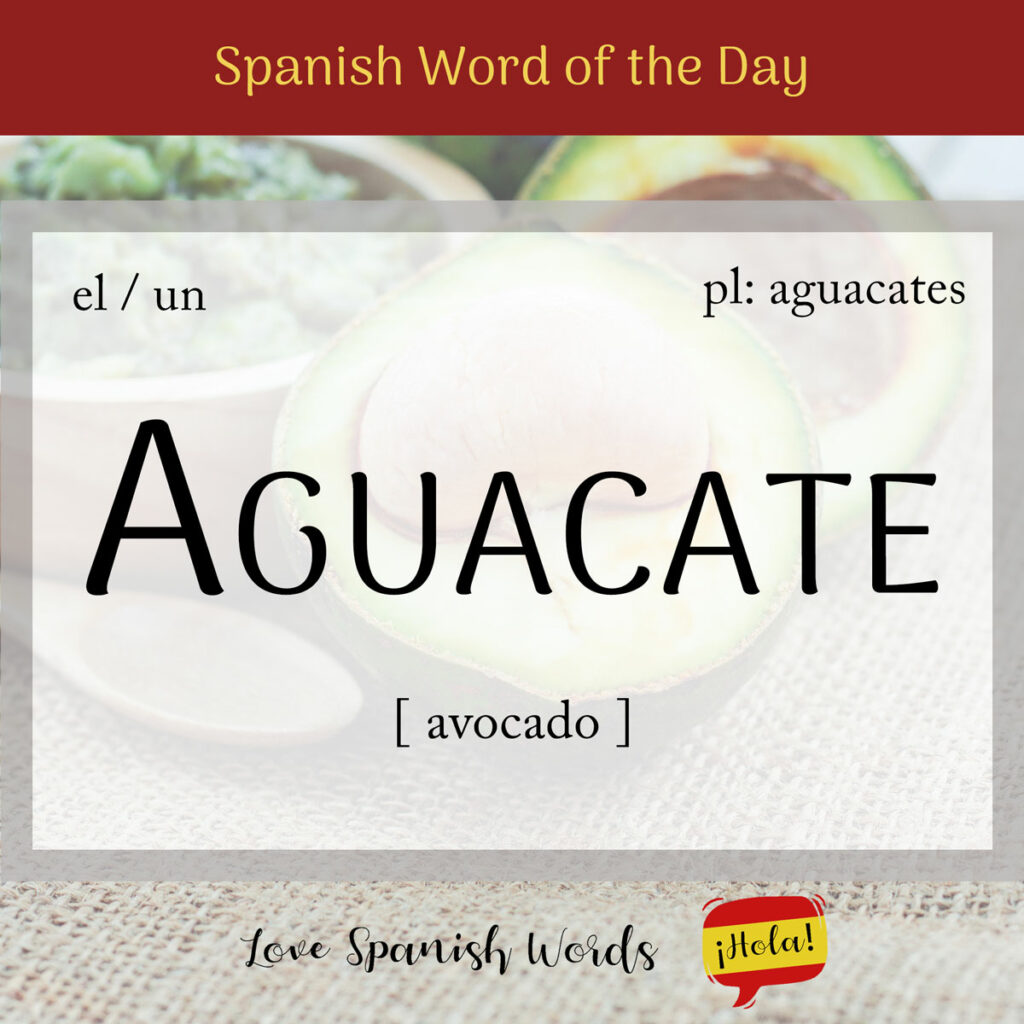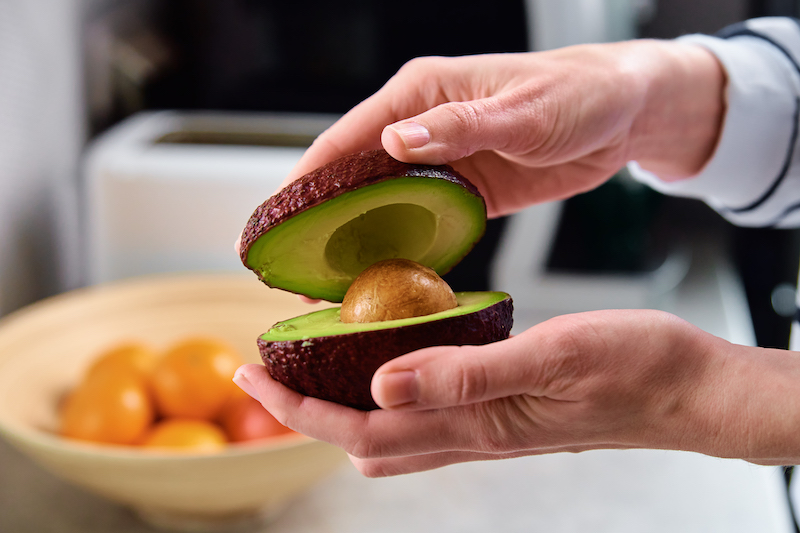The word aguacate derives from the Nahuatl word ahuacatl, which was originally spoken by the Aztecs in México and is still spoken by about 1.5 million people in some parts of the country. Interestingly, ahuacatl translates to testicle in English.
It’s believed that the fruit was named by the Aztecs due to its texture, shape, and size, as well as its tendency to hang in pairs. Additionally, there was a belief that the fruit acted as an aphrodisiac and fertility booster, hence the association with intimate male parts in its name.
Latin American Pronunciation
European Pronunciation

Aguacate takes the following definite and indefinite articles:
- el aguacate = the avocado
- los aguacates = the avocados
- un aguacate = an avocado
- unos aguacates = some avocados
Me encanta comer tostada con aguacate.
I love eating avocado toast.
Aguacates are a beloved and popular fruit, prized for their delicious taste and numerous health benefits. They are perfect in salads, as avocado toast, or mashed into a flavourful guacamole dip to enjoy with tortilla chips. There are countless ways to enjoy avocados. Here are some ways to eat and words that include aguacate:
- aguacates rellenos = stuffed avocados
- hueso del aguacate = avocado pit
- aceite de aguacate = avocado oil
- tostada de aguacate = avocado toast
- frituras de aguacate = avocado fries
- hummus de aguacate = avocado hummus
- salsa de aguacate = avocado salsa

Are you familiar with guacamole?
Guacamole is a dip or spread made from avocado that is usually served alongside tortilla chips when eating Mexican food. The word guacamole also originates from the Nahuatl language and comes from the word ahuacamolli. It translates to avocado sauce or avocado soup (molli meaning sauce or stew).
Guacamole ingredients include mashed avocado, jugo de limón (lime juice), cilantro, and salt but sometimes it includes tomatoes (tomatoes), cebolla (onions), jalapeños, and albahaca (basil).
A veces cocino con aceite de aguacate.
Sometimes I cook with avocado oil.
In some Spanish-speaking countries, the avocado is known by different names. In México, España, Puerto Rico, Colombia, Venezuela, Ecuador, and Central America, it’s called aguacate, while in countries like Uruguay, Chile, Argentina, Bolivia, and Perú, it’s known as palta. Additionally, Venezuela refers to it as cura, and Cuba calls it pagua.
The word palta originates from an indigenous language of Perú called Quechua. The original word is pallta and it means to lift or help, but it also refers to a “hanging sack that is being carried.”

Fun Fact: The word aguacate has been through many name changes, mostly in English. The Spanish conquistadores first named it aguacate because they couldn’t pronounce ahuacatl.
The first English name was alvacata, used by an English merchant. However, it was mostly referred to as avocado pear in English, but many called it alligator pear due to its resemblance to alligator skin. Eventually, the California Avocado Association decided to name it avocado in 1915 because it was easy to pronounce.
Los aguacates están llenos de vitaminas y minerales.
Avocados are filled with vitamins and minerals.
Spanish sayings featuring ‘aguacate’
“Aguacate maduro, pedo seguro”
The literal translation for this Mexican phrase is “ripe avocado, for sure fart.” It refers to the digestive properties of the fruit (high fibre content). The Spanish word pedo is one way to refer to gas or flatulence. However, it also has other colloquial meanings in México and one of them refers to having a problem or situation. In this phrase, pedo seguro has a double meaning, fart and a situation at hand (because you will be gassy).

Idiomatic expressions featuring ‘aguacate’
Tener mano de aguacate
Literal translation: to have an avocado hand
English meaning: to have a laceration, stab wound, or injury to the non-dominant hand while removing the pit

